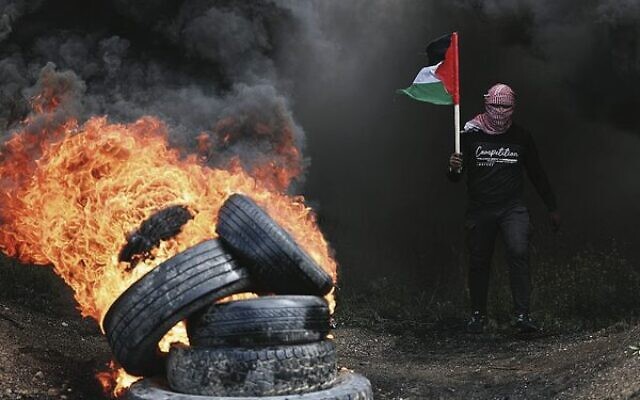Israel, PA renew vow to curb violence
Since the start of the year alone, 14 people have been killed in Palestinian attacks. Over 80 Palestinians have been killed during that same period

Israeli and Palestinian Authority delegations reconvened last Sunday for a relatively rare, albeit low-stakes regional summit in Sharm el-Sheikh, Egypt, where they recommitted to de-escalating tensions days before the start of the holy Muslim month of Ramadan.
Sunday’s meeting with accompanying delegations from the United States, Jordan and Egypt was a follow-up to a similar gathering held in Aqaba, Jordan, last month – the first such high-level confab of Israeli and Palestinian leaders in years. The sides have also agreed to meet for a third time next month.
The Sharm el-Sheikh summit, like the one in Aqaba, was marred by a terror attack that unfolded in the Palestinian town of Huwara. Sunday’s shooting on an Israeli-owned vehicle travelling through the northern West Bank town left a settler seriously injured.
Two Israeli brothers were killed in an attack last month. One Palestinian was killed during a settler rampage through Huwara hours later.
The attacks further highlighted the limited impact that such meetings are having in actually de-escalating tensions when the most hardline government in Israeli history is coupled with a historically weakened PA, alongside an ever-frustrated Palestinian public disillusioned over poor governance out of Ramallah and continued Israeli military rule.
Israeli and Palestinian leaders agreed to the meeting amid significant pressure from the US, Egypt and Jordan, which are aiming to lower tensions before the start of Ramadan, which in recent years has set the stage for further violence between the sides.
Since the start of the year alone, 14 people have been killed in Palestinian attacks. Over 80 Palestinians have been killed during that same period – most of them in clashes with Israeli troops.
As they did after the Aqaba meeting, the sides issued a joint communiqué on Sunday in which they committed to the “prevention of further violence”.
In the previous regional summit last month in Aqaba, Israel urged the PA to do more to regain control over the northern West Bank, telling participants that the more Ramallah acts against armed groups in the region, the less the IDF will have to enter the PA-controlled Area A for raids that have become particularly lethal in recent months.
“The two sides reaffirmed … their unwavering commitment to all previous agreements between them, in particular, the legal right of the Palestinian National Authority to carry out the security responsibilities in Area A of the West Bank, in accordance with existing agreements, and will work together toward realising this objective,” the Sharm el-Sheikh communiqué stated.
The Prime Minister’s Office issued a statement after the Sunday summit saying that the Israeli delegation “emphasised that in order to prevent an escalation during Ramadan and after, [the parties] must act decisively against terrorism without compromise”.
The joint communiqué said Israel and the PA also agreed to establish a “mechanism to curb and counter violence, incitement, and inflammatory statements and actions”, which will report back to fellow Sharm el-Sheikh participant countries – the US, Egypt and Jordan – when the sides reconvene for a third session in the Sinai resort town next month.
Israel and the PA also agreed to “establish a mechanism” to improve the economic conditions of the Palestinian people, as well as the financial situation of the cash-strapped PA. That mechanism will also report back to representatives from the US, Egypt and Jordan at the April follow-up meeting.
PA Civil Affairs Minister Hussein al-Sheikh, who led the Palestinian delegation, told The Times of Israel earlier this month that Israel committed at the Aqaba summit to release millions of dollars in tax revenues that it has withheld from the PA.
The rest of the communiqué reiterated agreements reached at the Aqaba meeting, including a commitment by both sides to refrain from unilateral measures for three to six months. For Israel, this means no advancing settlement plans for four months and no advancing the legalisation of West Bank outposts for six months.
The unilateral measures from which the PA must refrain were not specified in either communiqué, but an Israeli official told The Times of Israel earlier this month that they include initiatives targeting Israel in international arenas such as the United Nations and the International Criminal Court.
Also reiterated in the communiqué was a commitment to upholding the status quo at Jerusalem’s holy sites, which included a new disclaimer in which Israel and the PA agree to “actively prevent any actions that would disrupt the sanctity of these sites, inter alia during the upcoming holy month of Ramadan, which coincides with Easter and Passover this year”.
TIMES OF ISRAEL

comments